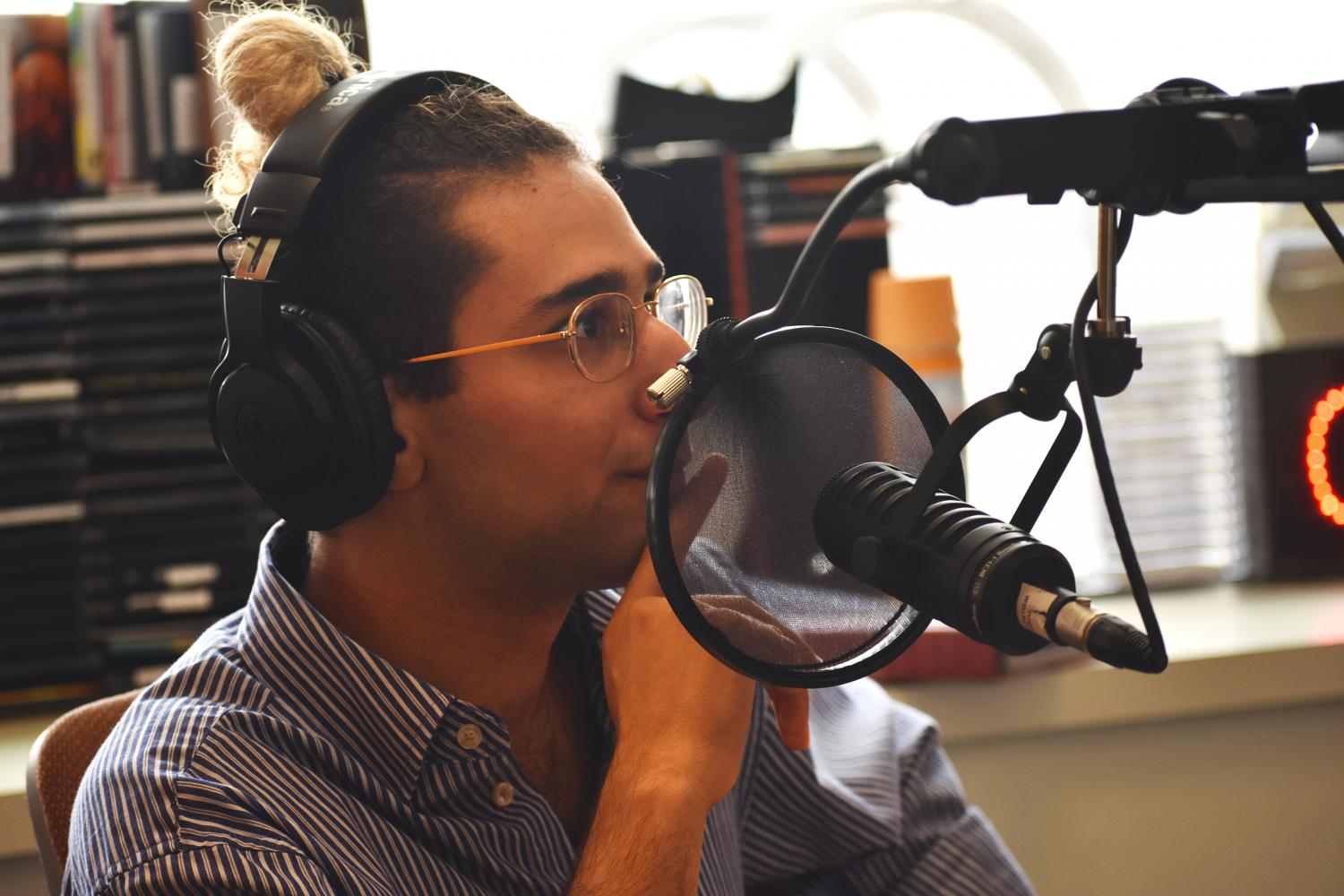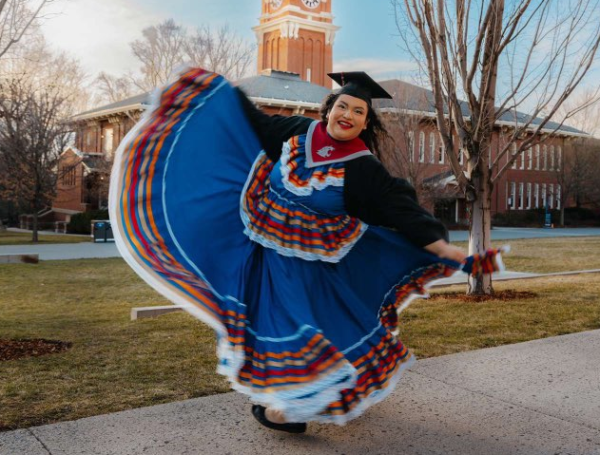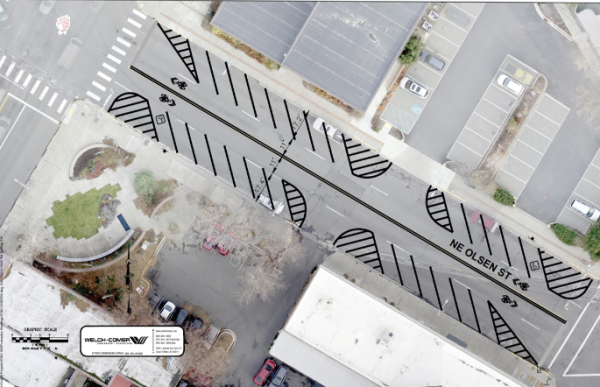Political clubs move forward
Student leaders say politics on campus have changed since election
KEISHA BROKAW | The Daily Evergreen
Acting President of the College Republicans Amir Rezamand in the KZUU studio discussing internalized misconceptions of conservative-leaning organizations.
September 8, 2017
Since WSU College Republicans fell under the national spotlight for its former president’s participation in the ‘Unite the Right’ rally in Charlottesville, current and former leadership plan to remain politically involved on campus.
In an appearance on KZUU 90.7 FM radio show “Cougar Tales,” new College Republicans president Amir Rezamand said he will strive to engage what he described as the average, politically-apathetic WSU student.
“The role I will push for hardest is as an educator,” Rezamand said to the show’s host, Gavin Pielow, who is also the Young Democrats president.
Less in the vein of speakers such as Milo Yiannopoulos, he said events will be policy-driven and education-minded over provocative, though he won’t shy away from leaving event goers in shock and awe to provide engaging educational experiences.
The junior economics major said he hopes the club’s future activities will make students more aware of the issues of the day, whether through tabling and posters, “adventurous” Trump Wall-esque events or by bringing in speakers and hosting debates.
“I don’t want to name names yet, but we have large speakers in the works,” Rezamand said. “I want to have a very diverse range of speakers because there’s a lot of schools of thoughts within conservatism.”
When asked if former president James Allsup would remain with the club as a general member, he neither confirmed nor denied Allsup’s participation in the club, but added Allsup is not involved with any leadership.
“We hold an open marketplace of ideas. We’re certainly not going to kick someone out because of their viewpoint,” he said. “There could be the most hard-left leaning person, and we will welcome them in with open arms.”
On a typical day at school, walking to the library or to work, students have randomly approached him, expressing interest in joining College Republicans, he said.
“Even with less than 48 hours of notice, and on a federal holiday, 25 members showed up,” Rezamand recalled of the club’s first meeting on Labor Day.
Amidst the 2016 presidential election, Young Democrats and College Republicans grew to record numbers in membership.
“When I became president at the end of my freshman year, spring 2016,” Pielow said, “there were probably were probably six Young Democrats, and now there are well over 35.”
Rezamand attributed increased interest in political organizations on campus to the social media age, in which it is inevitable to find political hot-takes from young adults online.
“We live in an age in which information is not proliferated through textbooks, not through discourse,” he said, “but more through this kind of memetic warfare … these easily digestible image macros.”
After seeing the tension between liberals, conservatives and third parties, global politics senior Hannah Oliason said, she wanted to see people be more open to listening to a variety of perspectives, and provide a space on campus for doing so.
Jacob Heinen, former College Republicans vice president, was involved in establishing Political Science Club, which will hold its first meeting Thursday. He said he wanted to get involved after he recognized the need for civil political conversations.
In debate with someone personally impacted by immigration policies, he said he sees it as important to recognize the human element of politics.
“It can seem extremely insensitive when the right doesn’t recognize [undocumented immigrants] came here for a better life,” he said of discourse surrounding illegal immigration. He said he is in favor of strong borders, but believes those trying to make an honest living in a new country should be allowed to stay.
The organization first piqued his interest when he read a Facebook message the College Republicans page received last spring from Oliason, who will lead the newly formed Political Science Club as president.
Oliason said it is centered around constructive political conversation, rather than campaigning for specific candidates or legislation.
“Our focus is on people that want to learn more about cross-partisan conversation,” she explained. “Say a liberal was trying to persuade a conservative about the legalization of same-sex marriage. Instead of focusing on equality, they’d focus on limitation of government.”
She plans to bring in WSU professors from the political science department to speak on pressing political issues such as relations with North Korea and access to health care.
The members of executive leadership are primarily liberal, but she said Heinen’s perspective and involvement provide a good balance during decision-making.
While he resigned from the College Republicans last spring, Heinen added he welcomes College Republican members to participate in the nonpartisan organization’s meetings and events.
He has also recently reached out to organizations such as the Environmental Sustainability Alliance, Black Student Union, Movimiento Estudiantil Chicano de Aztlan, Students for Life, among others about collaboration.
“We want to serve them and be a bridge if they ever want to collaborate,” Heinen said.
With an increased interest in politics, there has also been a clash of ideologies on campus, Pielow said, as at least a third of students come from conservative-leaning Central and Eastern Washington, even if many students come from the west side of the state.
“I think the only path to civil dialogue is by putting two people together to avoid that monologue,” he said.





















